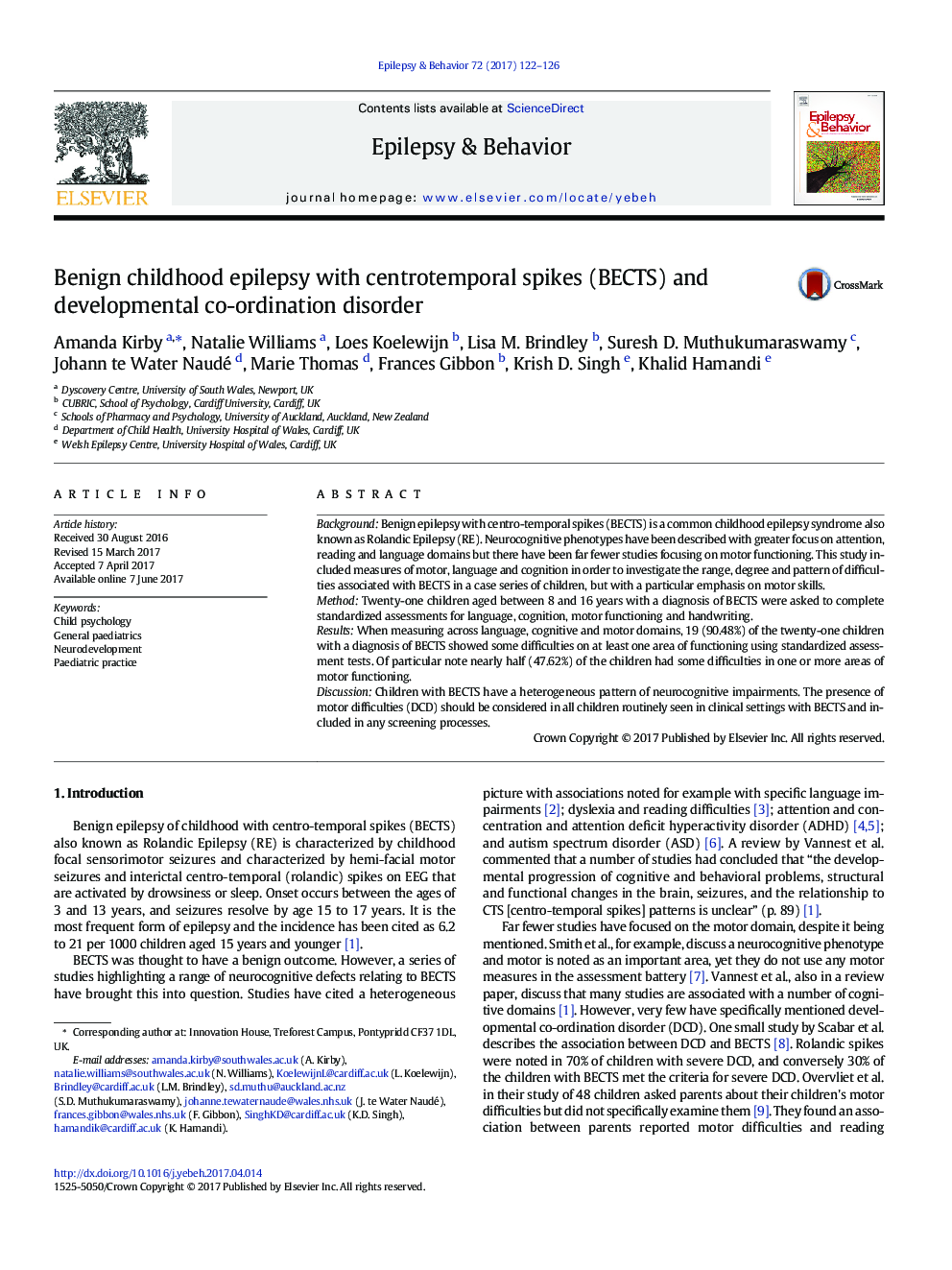| Article ID | Journal | Published Year | Pages | File Type |
|---|---|---|---|---|
| 5628258 | Epilepsy & Behavior | 2017 | 5 Pages |
BackgroundBenign epilepsy with centro-temporal spikes (BECTS) is a common childhood epilepsy syndrome also known as Rolandic Epilepsy (RE). Neurocognitive phenotypes have been described with greater focus on attention, reading and language domains but there have been far fewer studies focusing on motor functioning. This study included measures of motor, language and cognition in order to investigate the range, degree and pattern of difficulties associated with BECTS in a case series of children, but with a particular emphasis on motor skills.MethodTwenty-one children aged between 8 and 16Â years with a diagnosis of BECTS were asked to complete standardized assessments for language, cognition, motor functioning and handwriting.ResultsWhen measuring across language, cognitive and motor domains, 19 (90.48%) of the twenty-one children with a diagnosis of BECTS showed some difficulties on at least one area of functioning using standardized assessment tests. Of particular note nearly half (47.62%) of the children had some difficulties in one or more areas of motor functioning.DiscussionChildren with BECTS have a heterogeneous pattern of neurocognitive impairments. The presence of motor difficulties (DCD) should be considered in all children routinely seen in clinical settings with BECTS and included in any screening processes.
